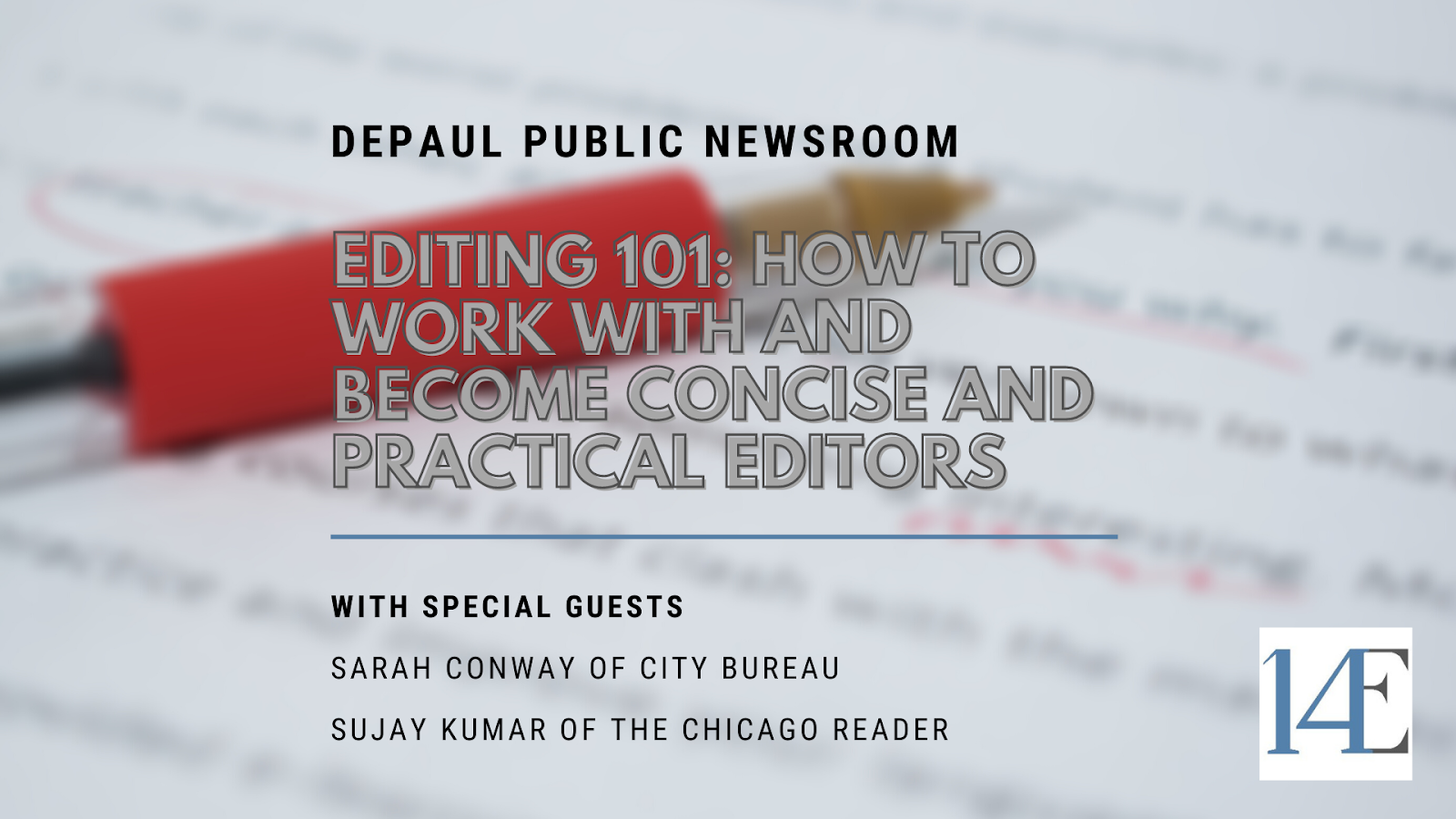Missed the public newsroom? Watch the recording here on 14 East’s YouTube.
On Monday, 14 East was joined by editors Sarah Conway of City Bureau and Sujay Kumar of the Chicago Reader to discuss how to work with and become concise and practical editors.
Both Conway and Kumar provided us with a lot of information regarding editing, freelancing and navigating the journalism industry. We’ve also compiled a list of resources for writing, editing, reporting and freelancing (courtesy of Sarah Conway).
Be passionate and remember that often, the writer is the expert.
While everyone needs an editor to help their stories reach their full potential, it’s good to remember that the writer is the one who spends hours reporting. For reporters, be confident in your abilities and passionate about why your story matters when pitching it. Tell the editor why it’s worth your time and why it’s worth theirs as well.
When working with editors, it’s important to know what you want and how to ask for it.
While it may be daunting, it’s good for freelancers to decide how much money they should be getting for their work and then negotiate that price with their editors. This includes asking for a kill fee in case that piece doesn’t end up running and establishing a contract before turning in any work.
In the words of Kumar, “It can kind of be like the wild west out there,” so it’s okay if you want something in writing.
When in doubt, pick up the phone.
Relationships between writers and editors can be tricky to navigate, especially if you see a lot of edits and changes being made to your piece and you don’t understand why. It’s best for both parties to get on the phone and talk about the edits and direction of the piece.
“With a lot of things, you just want to have a conversation and hear them out,” said Conway. “If you really think something needs to go, as an editor, you need to be able to explain the logic as to why it needs to get cut.”
One of the biggest parts of being an editor is good management skills.
A lot of editing is actually management and organization. If you’re looking to become an editor, learning these skills is a good place to start. Invest some time into learning about project management and gaining skills from other fields that are applicable in journalism.
Identify those who encourage you and want to see you grow.
If possible, it’s good to seek out individuals who provide advice and encouragement but also push you and recognize your full potential. This doesn’t always have to be a formal relationship, either — it can be asking someone to look over work or talk about ideas with anyone who feels like an ally in the journalism world.




NO COMMENT